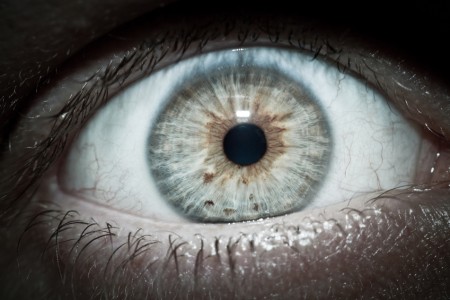
Buy cheap and genuine Windows 7 product key |
Windows 7 Product Key for Windows 32bit/64bit Updated 2016y |
Windows 7 Ultimate ISO download |
Windows 7 Product Key Generator 32 bit and 64 bit Full |
Legit Windows 7 Product Key Online Store, PayPal Support |
Windows 7 Ultimate with Service Pack 1 Product Key,Windows 7 Key Sale |
Windows 7 Key |
Get Free Windows 7 Product Key |
windows-10-education-key
windows-10-enterprise-key
office-2010-key
windows-7-key-sale
windows-10-home-key
windows-10-activation-key
windows-10-pro-key
office-2016-key
windows-10-key
office-2013-key
windows-10-iso
windows-7-key
windows-10-product-key
Rabbi Yochanan ben Zakkai was one of the great heroes in Jewish history. A descendant of the house of David, he was the leading sage at the time of churban Bayis Sheini. As the Jews and Romans were struggling for control of the Holy City, he managed to escape from the capital and engage the Roman commander (and soon to be emperor) Vespasian in a conversation which would have lasting effects for the Jewish people. Though his dialogue did not end the long, painful military campaign in which the Jews and Romans were engaged, nor was it successful in preserving autonomous Jewish life in their homeland, it did set the stage for Jewish survival and rebirth in exile, an endurance that has defied all historical odds.
Planning for the Future
Rabban Yochanan opened the discussion with Vespasian by declaring that he had been appointed the Roman emperor. His statement was soon confirmed by a Roman courier. Overjoyed at the news, the new emperor granted Rabban Yochanan a unique opportunity to have his wishes satisfied. The sage asked for three things, all relating to Torah and the Jews’ spiritual preservation: “Give me Yavneh and its wise men, the family chain of Rabban Gamliel, and physicians to heal Rabbi Tzadok.” (Gittin 56b)
Let us explore each of these appeals a bit further.
- Yavneh and its wise men – to preserve the Torah, Rabban Yochanan asked that the Torah academy in Yavneh (near the Judean coast, just south of Yaffa) be spared. This would later become the seat of the relocated Sanhedrin and the primary Torah center for the next generation.
- The family chain of Rabban Gamliel – to sustain the line of nesi’im that had begun with Hillel. It was now passed on to Rabban Gamliel II, the young son of Rabban Shimon ben Gamliel I who had perished during the siege of Yerushalayim. The nesi’im offered strong leadership for this tumultuous time, vital for the survival of a single national and religious Jewish entity.
- Physicians to heal Rabbi Tzadok – who had fasted for forty years to avert the destruction and was in ill health.
In his blind ecstasy, the newly elected Roman emperor granted all of his requests. He even provided a safe escort for the Torah sages as they relocated to Yavneh.
Many of Rabban Yochanan’s contemporaries opposed his moving the Sanhedrin from Yerushalayim, and were slow to embrace it in the new location. Yet, Rabban Yochanan persisted. He understood that the most important decisions in history can also often be the more difficult. His peers did not fully appreciate this at that time; the benefit of hindsight has allowed us to see things differently.
Need to Remember
Rabban Yochanan ben Zakkai also understood that Jewish spiritual survival required a strong recollection of our past glory. Once at Yavneh, he passed numerous legislations designed to preserve the legacy of the Beis Hamikdash for subsequent generations, so as to keep the connection alive long into the exile period. These became known as “zecher l’Mikdash.” Some examples include:
- Marror – Eating bitter herbs, or marror, on the first night of Pesach is mandated by the Torah only in conjunction with consumption of the Paschal sacrifice. With the abolition of sacrifices, the biblical obligation ceased. We eat marror today as a zecher l’Mikdash. This also applies to Korech, the combination of matzah and marror.
- Shofar – During the Temple period, the shofar was sounded on Rosh Hashanah that fell on Shabbos only in the Temple, not elsewhere. Rabban Yochanan now ordained that it be sounded on Shabbos in any locale that possessed a Beis Din. (Rosh Hashanah 4:1)
- Lulav – Originally, the lulav was taken for all seven days of Sukkos in the Beis Hamikdash only; those outside of the Mikdash only took it for the first day. It was later instituted that the lulav should be taken everywhere for all seven days. (Sukkah 41a)
In addition to these legislations, a number of decrees were passed to ensure that the Jewish people would continuously remember the loss of the Beis Hamikdash. These became known as “zecher l’churban”, and include leaving a little area near the front entrance of one’s house unfinished when plastering, omitting an item or two when preparing a full-course banquet, and for women to not fully adorn themselves. Throughout, he held out hope that the Beis Hamikdash would again be rebuilt, speedily in his own days. (Beitzah 5b)
Rabban Yochanan ben Zakkai risked his life for one purpose, to preserve our most precious commodity, the Torah. His efforts have borne remarkable fruits, a steadfast nation committed to the dictates of G-d’s eternal message. Only through this commitment, have we managed to buck the historic trends that should have terminated our existence so many years ago. May we merit to a further strengthening of this commitment, so as to restore G-d’s open presence within our midst.
Rabbi Naphtali Hoff is President of Impactful Coaching & Consulting. He can be reached at 212.470.6139 or at nhoff@impactfulcoaching.com.



















